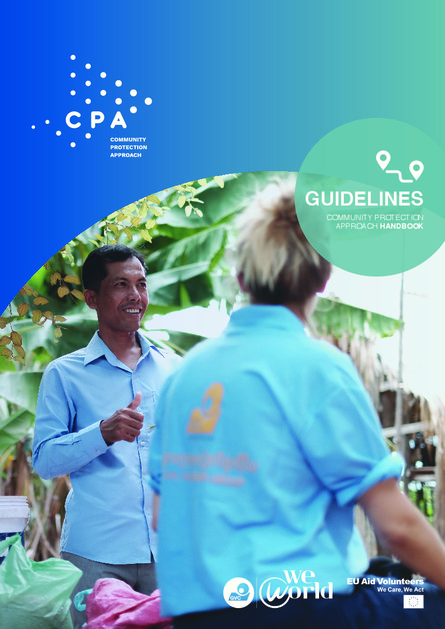
Humanitarian actors face challenges and constraints affecting the possibility of addressing global calls for new approaches where the centrality of protection, “multi-sectoriality”, the humanitarian-development nexus and localization are recurrent priorities (World Humanitarian Summit –WHS-, 2016; Daar et al. 2018; Benett, 2019). However, programming tools based on the linear understanding of reality and direct relief provision with siloed assessments and output measurements (Oxfam, 2019), are still barriers for responders when implementing new principles. Humanitarian actors need more comprehensive approaches with the tools at hand (sector-specific, project-bound, etc.) ensuring real ownership of right-holders.
The Community Protection Approach – CPA – is the result of continuous, action-led research conducted by WeWorld-GVC having started in 2013, with the collaboration of key humanitarian and research partners in protracted crises. The CPA, present in its 3rd revision, provides a systematic set of operational instruments for local responders and aid actors to design projects and programs, and to steer area-based coherence and complementarity with other multi-sector actions under an Integrated Protection framework.
The Guidelines provide a step-by-step guidance for field implementation. It forms part of the 2nd module of the CPA Handbook. The CPA Handbook is openly available to any organization, individual or institution interested in studying or applying the CPA. It has been designed particularly for its application by organizations with few technical and human resources, and it is composed of 6 modules: The Overview, Guidelines, Toolkit, Contextualization, Training Package and Individual Protection Approach. The CPA Handbook provides non-digital tools, yet is also complemented by a specific web-based Platform developed by WeWorld-GVC. The CPA Platform automates quantitative and qualitative data collection and analysis, together with standard project management activities (reporting, remote monitoring, quality control of data collection, identification and referral, field staff planning and supervision). It is designed to ensure integrated protection and multisector assessments, as well as monitoring and analysis serving both humanitarian and development projects or programs.
For this purpose, We-World GVC is available to provide support and further information to deploy the tools proposed and guide their appropriate use. The CPA is proposed by WeWorld - GVC to be replicated, further developed or used in the design of derivative mechanisms. Further information on the other modules of the CPA Handbook or the deployment of the CPA Platform, can be found in CPA Initiative Website: https://cpainitiative.org/